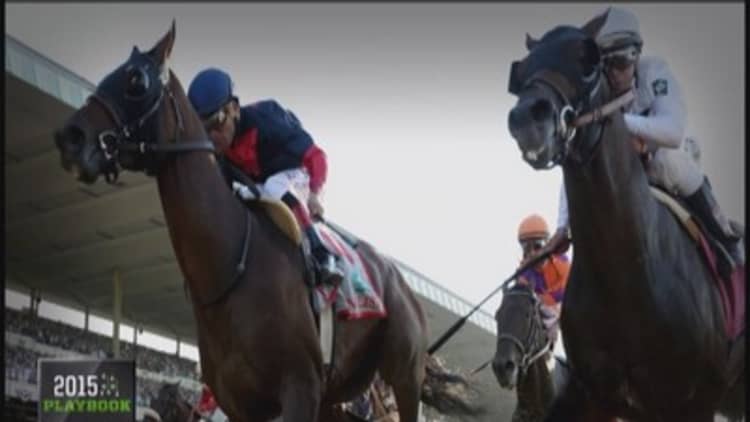With March Madness right around the corner, the National Collegiate Athletic Association is using some tenacious defensive play in the courtroom—and its entire concept of the amateur athlete may be at stake.
Next week, oral arguments are set to begin in an appeal made by the college sports association in the case of O'Bannon v. NCAA, a suit originally brought by Ed O'Bannon, who played on the 1995 national championship basketball team from UCLA.
Last August, federal Judge Claudia Wilken in O'Bannon v. NCAA ruled that the association violated antitrust law by prohibiting athletes from the Football Bowl Subdivision—the roughly 125 schools formerly known as Division 1-A—and Division 1 men's basketball from being compensated for use of their names, images and likenesses.
Wilken ordered that schools be allowed to offer the athletes full cost-of-attendance scholarships and place up to $5,000 per athlete, per year of eligibility, into a trust. Cost-of-attendance scholarships allow universities to increase the amount of money they provide to athletes to cover cost-of-living expenses that fall outside of the bounds of current NCAA scholarships.
The NCAA did not respond to a request for comment.
Read MoreNCAA pool is worth $15,000—if you can write code
Some conferences have begun allowing members to offer full cost-of-attendance scholarships. Now, schools have to figure out how to cover for the extra cost.
"Funding full cost of attendance scholarships will impact our budget by approximately $1.7 million," said Phil Esten, Penn State's deputy director of athletics and chief operating officer, who added that some schools are funding them "from their operational budget, while others are seeking increased university subsidies. In many cases, it's a combination."
Schools in conferences without lucrative television deals have fewer options from which to find funding.
"Some mid-major conference schools are scratching their heads, asking how they'll get the money," said an athletics director at a mid-major university who wished to remain anonymous. "Some are raising ticket prices. Others are asking their state legislature."

Despite that, some scholars and economists believe that every Division I school has money to pay for the extra costs. They just need to find it.
"Finding the money is about reallocation. We have seen a tremendous building boom in athletic facilities. Once the debt service is taken care of, the money is there," said Stephen W. Dittmore, associate professor of recreation and sports management at the University of Arkansas.
Economist Andy Schwarz, who worked on the O'Bannon case, agreed.
"The question is whether awarding full cost-of-attendance scholarships is a good use of funds. The answer for most schools is that it is," he said, noting that the five biggest, most high-profile athletic conferences have already said they'll do so. "With the 'Power Five' saying that they'll offer full cost-of-attendance scholarships, competition is driving the schools who are barely hanging on in the FBS to make that decision, too."
Read MoreNCAA tourney run can bring billions (with a 'B')
One challenge is that it's not just the big revenue sports whose athletes are likely to claim that they should have their full cost of attendance covered. But schools looking to cut costs by offering such scholarships only to football and men's basketball athletes may want to think twice before they do.
"Title IX might come into play," said Marc Edelman, an associate professor of law at Baruch College, referring to a law that requires gender equity in college sports. "There are reasonable arguments that if full cost-of-attendance scholarships are paid to male athletes, they need to be paid to female athletes."
Another case, Jenkins v. NCAA, seeks the creation of a free market to pay FBS football and Division I men's basketball players. The case is set for a hearing to determine if it should be certified as a class action.
Edelman doesn't think the Jenkins case would ever result in all athletes being paid equally, however: "Athletes that generate higher revenue could receive higher compensation, even if this means male athletes get paid more than female athletes."

